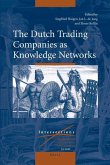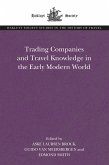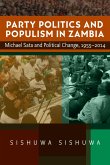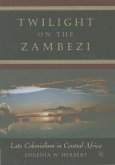The establishment of a settlement at the Cape of Good Hope in the seventeenth century and an expansion of the sphere of colonial influence in the eighteenth century made South Africa the only part of sub-Saharan Africa where Europeans could travel with relative ease deep into the interior. As a result individuals with scientific interests in Africa came to the Cape. This book examines writings and drawings of scientifically educated travellers, particularly in the field of ethnography, against the background of commercial and administrative discourses on the Cape. It is argued that the scientific travellers benefited more from their relationship with the colonial order than the other way around.
Hinweis: Dieser Artikel kann nur an eine deutsche Lieferadresse ausgeliefert werden.
Hinweis: Dieser Artikel kann nur an eine deutsche Lieferadresse ausgeliefert werden.








